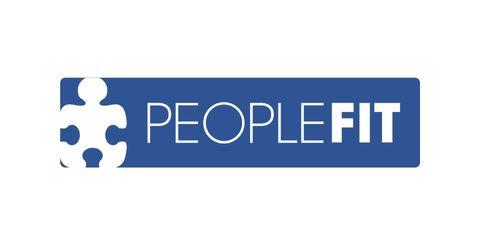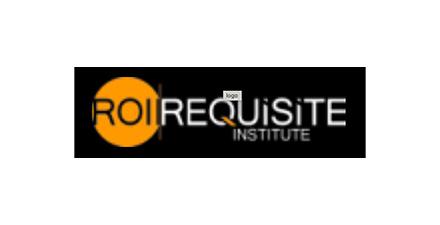
A CEO's Experiences in Re-Designing Her Organization - Ruth Hubbard, DM, Public Service Commission of Canada
- How did you do this in government? Must be fascinating. Most useful was working at the missing levels of work which exist. You only know that by trying. I've done most of the amazing jobs on the front line.
- Change strategies are always destabilizing for people and people always dislike the discipline. I would say that it is more threatening to power. This actually works. Not for everybody, but for some people it's more threatening and they will savage and it is a tough thing to do.
- Can we just add something on the managing expectations in the public sector. The good news or the bad news? The advisor for taxpayers. But I tell you that managing the expectations down turns out to be a very constructive strategy.
Speaker A To do is get a little bit of their views and how they see this and how they came about it. Ruth, you've been in government now, you've worked in several departments and you've had lots of ex...
Transcript of the presentation video
NOTE: This transcript of the video was created by AI to enable Google's crawlers to search the video content. It may be expected to be only 96% accurate.
Speaker A To do is get a little bit of their views and how they see this and how they came about it. Ruth, you've been in government now, you've worked in several departments and you've had lots of experiences. What what got your attention?
Speaker B Well, good luck. Mostly because I had been asked to implement the Canadian version of tax which is extremely unpopular and it was on my Idi. But part of my organization, which was about 12,000 people, about 900 points of service it was customs and about end of the preception tax. The tax life, which is about 50 00 12,000 had to grow by almost 100%. And my direct support, the executive vice president if you like, knew that he needed advice on how to structure the new, much bigger organization to administer the attack. So it was nothing to do with me. I had lots of other problems to worry about and Ron Felt was a person who gave advice to this group about how to structure. And what really impressed me besides the fact that like the others, it made sense to me, the strategy and it took me to the books on record organization, human disability later. But what I really liked was the fact that these people had been administering an old pact that had been in place since 1924, very stable. Their culture has changed enormously and this process allowed them to come forward and recommend that we completely turn the organization they had run for many, many years on its head that they told me that we had been centralizing the administration and decentralizing the policy which was of course half actors. I was really impressed that these people who I was concerned about in terms of cultural change found it so appealing and were so able to understand that they had to some of them give themselves out a job. And so I thought there has to be something to this intuitive feeling. And I again proceeded to use those tools, those ways of thinking about things. In all the jobs that you.
Speaker A What was that kind of thing for you? Was it just the tax issue or was it something more?
Speaker B No, a little bit about working in the public sector. First of all, you don't have all the paper even though you have the responsibility and accountability. So, for example, I'm putting in the biotech. Tst. I couldn't hire, I couldn't fire, I couldn't choose where to put production, I couldn't do a lot of things but I had to get the thing bloody working. So it's a bit different in that sense. And you get moved in a professional public service fairly frequently, maybe you do in private sector too, but you kind of assume to be a generic leader, manager and so people that work with you, your direct reports if you like, are the experts. And I was only going to be the place, if I was lucky, four years I was lucky in between if I was really unlucky, which I wasn't for some while. I had five jobs in 18 months. So if you're not going to be anywhere very long, neither for the organization is you couldn't know the person. What can you do? And so this stuff helped me. First of all, it suited my style, so I could understand whether my arriving in an organization I was likely to want to do that the level of work that I wanted to do and the level of work that the organization required, never mind capability. I was told one Friday, monday I was to run the Rock Navy Mint, which is a small, medium sized manufacturing business. I kept wanting to make it into a kind of different instrument because I wanted to make it more complicated. It isn't more complicated. So it helped me understand this stuff. The other thing was it helped me we're only going to be there a while and I really do want people to do better, to have an environment where they can contribute more. How can I help in short pieces? And so I used it at an headquarters where I knew there was compression. My intuition told me there was. But when I was in the elevator, people told me what they did and they were all stepping on each other's toes. This was an objective way of saying, all right, what have we got in the nature of the work? If it works, they were going to scream like stock piggies, these characters, because they were going to lose some of them who were going to lose their jobs. Some of them were going to lose their lives. I needed an objective tool. It both helped me as a manager and leader and it helped me to make parts of the organization, whichever ones I judged I could probably make a difference in better for whoever came after me and for people who are going to be there.
Speaker A How did you do this in government? Must be fascinating.
Speaker B I think you have to decide what's doable. And my experience certainly is that with some rare exceptions, like the GST sample, you do it with different pieces or you do it steps. And I found the most useful was working at the missing levels of work which exist. A fair amount particularly exist with the highly paid people that are Edwards, which is a lot of federal government. And there's a perception that all basic work and all these work and all the difficult work is done in Edwards. Nothing up there is actually really very important. What you discover is that the sender, which is the center of the whole federal government, tends to delayer out there and they never delayer in Edwards. And so when I got to these places, I used to tend to find there were missing levels of work out there. And it wasn't always. In fact, often people were quite capable. The work wasn't being done and so one could act on that in one's own little favorite to some extent. And that makes a huge difference often in the product. And I guess the other thing is I relate to the job set up with information, always finding out in whatever ways you can what the heck is going on out there. So that you can make a judgment about if we only act in a piece, which piece or how, or even a step which step. You only know that by trying. I've done most of the amazing jobs on the front line. There were public areas like in none of which I would do for attention. They're all credible, but in the sense that I couldn't do this. But they sure helped me understand what life is like out there on the front line. And it sure helps to make judgments about where that.
Speaker C Way.
Speaker A You've been through this?
Speaker B Yes, I would be less tolerant. I called poor performance sooner realizing that I wasn't being doing a good job for the business and I wasn't doing a good job for the person. What I was doing by avoiding it was being isolated. And it would require more difficult conversations too. And I certainly had difficult conversations. I would certainly do it. But I kind of talked myself into putting it off and I would do much of that.
Speaker C What do you think made Rob and you guys different from many other guys having the same decisions that have seen this theory really say this is the way it works, but still they don't go ahead and pull the implement and what is it that they don't have or you do have?
Speaker B I would say that it is more threatening to power. This actually works. And so change management, change strategies are always destabilizing for people and people always dislike the discipline. Actually might be effective in sharing power or being clear about power or saying to somebody who thought they had power that they don't actually have power. And so not for everybody, but for some people it's more threatening and they will savage and it is a tough thing to do. The benefits are extraordinary. They unleash the capacity of a whole order of people. But for some people it's very scary stuff than other kinds of change. Can we just add something on the managing expectations in the public sector because there is a bit more flexibility in the public sector. The good news or the bad news? The advisor for taxpayers. But I tell you that managing the expectations down turns out to be a very constructive strategy. If you can manage to manage them down during the period that you know it's going to be advanced here's the administration, we actually had four small businesses who send us money, which we probably lost, feel sorry for us. It's downturn in the business cycle. So I mean, let me tell you that it is worth thinking about what should strategy about managing the expectations, the people you know are going to be the outcome. If the outcomes would be dreadful, you got to get them to understand. Dreadful is actually good. It the government.

Major organizations and consulting firms that provide Requisite Organization-based services









